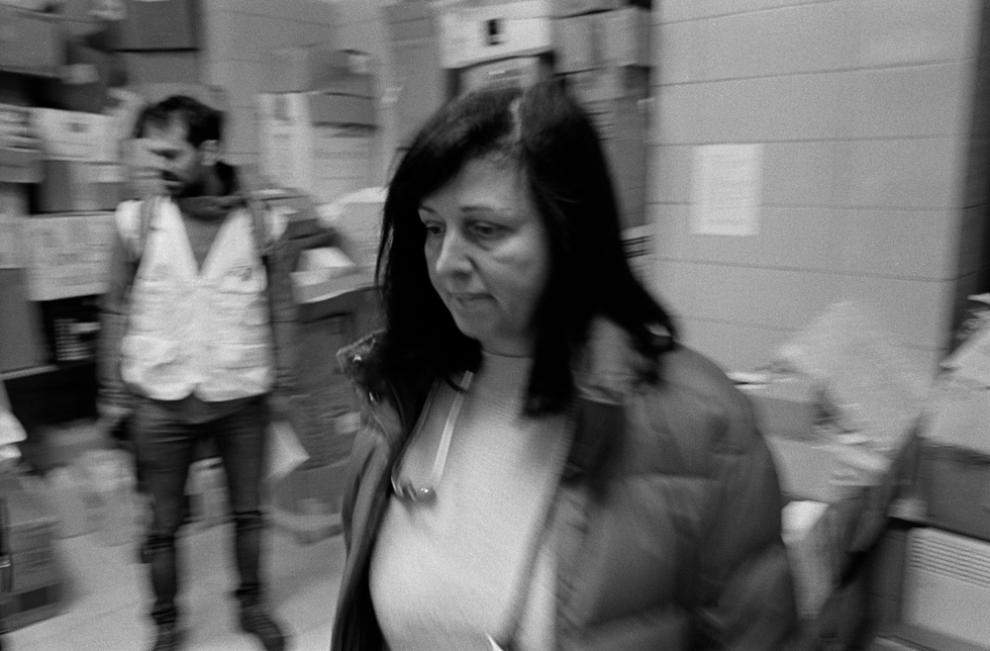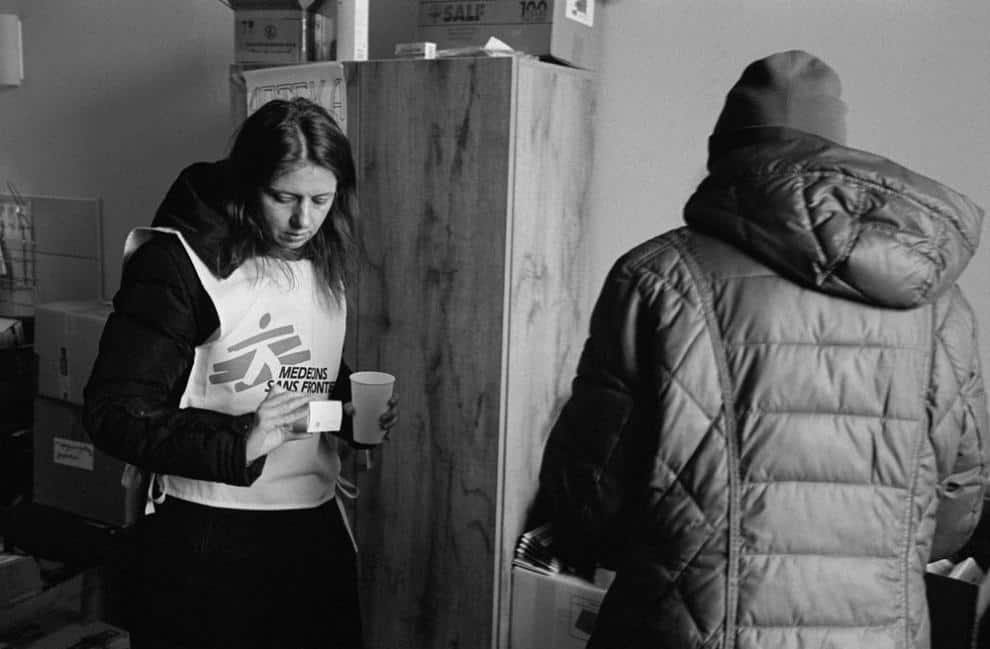Between 25 February and early April, the town of Hostomel, on the outskirts of Kyiv, was the scene of brutal fighting, and for a time was under the control of Russian forces. As soon as it was relatively safe to do so, an MSF team began to work with local healthcare professionals to restart medical services. Communications manager Maurizio Debanne has recently returned from Hostomel and shares what he saw…
Our appointment is in the early morning. Kyiv is almost deserted. The kiosk that sells coffee is still closed; the shutters will only open when it is time for us to leave.
Destination: Hostomel, a city about 30 kilometers north-west of Kyiv.
Along the way, collapsed bridges, gutted houses, checkpoints, trenches dug along the side of the road like a scene from a film. But there is very little fiction here: the devastation is real.
Eventually, the car stops in front of a bullet-riddled building. On the ground floor there is a clinic. In the parking lot opposite there is a destroyed tank. A few weeks ago there was a house-to-house fight on this block.
Doctor Olena
“The situation immediately became terrible. There were people with shrapnel injuries, bruises,” says Olena Yuzvak, a doctor who coordinates the clinic’s medical activities. “People were afraid. They simply didn’t know what was happening and they certainly weren’t ready for all of this.”

Dr Yuzvak is the only doctor who has never stopped working at Hostomel. She would have countless reasons to break down, or at least reasons to rest, but her drive to help her patients keeps her incredibly motivated.
Angela
“Four rockets exploded near my house” says Angela, an elderly woman from Hostomel. She’s telling us about a March morning in which an attack lasting about 20 minutes cost her husband a bad shrapnel wound.
“I ran to the basement but he was too far away. He couldn’t make it in time. He has lost a lot of blood. Fortunately, after the attack he managed to get to the shelter and I was able to treat him with disinfectant and bandages that I had prepared there.”
The team on the ground
As the fighting ended, an Médecins Sans Frontières / Doctors Without Borders (MSF) team began working with Dr Yuzvak and other doctors to restart health care for people in Hostomel.
The team are mainly seeing people with chronic diseases, hypertension, asthma, sometimes pneumonia caused by living too long in shelters or basements. I spoke to Kateryna Kycha, a member of the team, about what it has been like.
Healing psychological wounds
Talking to different people, it’s clear that physical injuries are just part of the impact the war is having. I’m introduced to the MSF psychologist, Yulia Korzh.

Yulia is busy: she tells us that she is seeing more than ten patients a day. “The people here are strong,” she says, “but they need to talk, to say what they have experienced. Through our conversations, little by little we understand if there are psychological problems that need to be addressed.”
Yulia tells me the story of a man who had to have his fingers amputated.
Normal (for wartime)
“I’m not alone anymore,” says Dr. Yuzvak with relief. “Now there is a team of doctors and volunteers here with me.”
Some of that team are MSF staff, but others are people like Alina, a retired pediatrician with over 50 years of service.
Alina keeps the pharmacy where various drug donations arrive. She explains that you have to read the labels carefully, because the drugs come from different parts of the world and it is not always easy to understand the active ingredients.
As we talk, outside the clinic, people are clearing the streets of rubble. Others are working to make sure crucial services such as gas, water and electricity are restored.
Hostomel is returning to normal, but the war in Ukraine is not over yet.
-
Related:
- Armed conflict
- MSF in Ukraine
- War
- War in Ukraine












